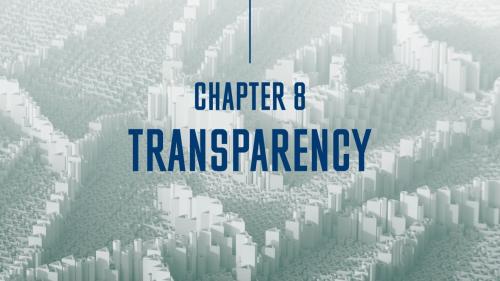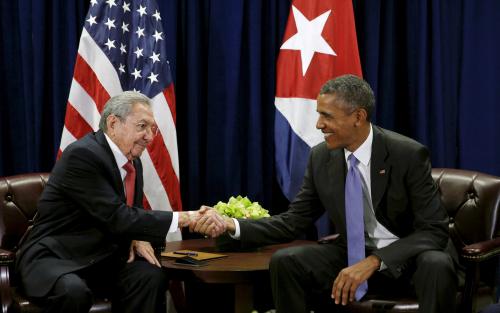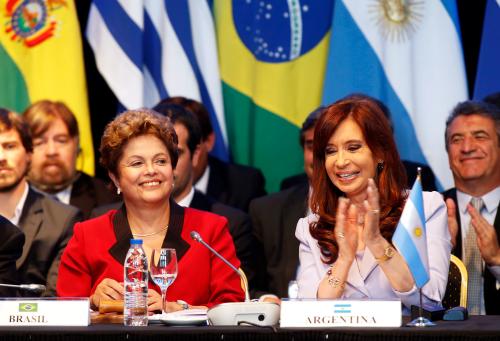Barack Obama has come to the end of his week-long trip around Asia, with stops in Japan, China and South Korea, as well as Singapore for APEC and a meeting with ASEAN leaders.
The tour went pretty well. There were no big mistakes (unless, like right-wing bloggers in the United States, you trouble yourself with the depth of the President’s bows), but there were no memorable achievements either.
The week did add to our understanding of his approach to four issues that matter to Australia: the future of Asia; US relations with its competitors and allies, and human rights.
Some analysts think that among American politicians, only Republicans care about this part of the world. Democrats are supposedly too interested in Europe to understand Asia.
Yet last week shows that the region matters a great deal to Obama. He knows more about the Pacific than most of his predecessors and there was nothing desultory about this trip.
The Europeans are certainly feeling a little anxious about his Asia focus. More than one commentator contrasted his presence in Asia this week with his absence from the 20th anniversary of the fall of the Berlin Wall.
Any U.S. president would have brought a respectful demeanour with him to Beijing. China is not only America’s leading creditor and trading partner; its global power is increasing across all dimensions. Talk of the U.S. and China forming a “Group of Two” wildly flatters Beijing, which cannot compare with Washington in its ability to project power or influence decisions, or its willingness to bear responsibilities. Nevertheless, China is the coming power, and the agenda for Obama’s talks with President Hu Jintao – covering tariffs, currency, climate change, Iran and Afghanistan – demonstrated the breadth of China’s interests.
In light of this, Obama proposed to “deepen” the bilateral relationship and his officials have spoken of “strategic reassurance”. This approach is worth trying. The Chinese remain very conscious of the wounds they suffered at the hands of the imperial powers, so Western dictates are unlikely to produce results. Instead, Obama is trying to draw Beijing further into the international system’s web of benefits and obligations.
If strategic reassurance is to be meaningful, however, it needs to be reciprocal. There were no signs of Chinese concessions on currency revaluation or climate change, no tough Chinese talk (as we have seen from the Russian President, Dmitri Medvedev) on Iran’s nuclear program.
Obama urged that “in an interconnected world, power does not need to be a zero-sum game”. The Chinese leadership may like that line, but I don’t think they believe it.
One advantage Obama has in this game is a decades-old alliance structure of enormous value, one that China would love to replicate. In Japan and South Korea, Obama sent the signal that these alliances “are not historical documents from a bygone era, but abiding commitments to each other that are fundamental to our shared security”. Both sides moved a little on the Korea-U.S. free trade agreement, and Obama showed real steel in his comments on the nuclear programs of North Korea and Iran.
This was important because his commitment to alliances remains untested. The alliance system does not form a mental framework for him in the way it does for, say, Senator John McCain. In this context, the personal relationships between allied leaders and the President assume unusual importance. It was hard to spot another Asia-Pacific leader last week who has a stronger bond with Obama than Kevin Rudd, who was very adroit in his dealings with the President.
But the trip also shed more light on Obama’s approach to human rights. As President he has been quiet on the issue, even declining to meet his fellow Nobel Peace Prize winner, the Dalai Lama. He telegraphed that human rights would be progressed with China “in a spirit of partnership rather than rancour”.
Obama spoke out on censorship in his meeting with young Chinese in Shanghai. He was, perhaps, overly cautious with his choice of words, saying “I’m a big supporter of noncensorship” – which is, presumably, less confronting than saying “I’m a big opponent of censorship” or “I’m a big supporter of free speech”. Eighteen months ago, in his speech at Peking University, Rudd was more forthright, referring to “significant human rights problems in Tibet”.
As U.S. President, Obama needed to be careful in his remarks. The last thing he needs, with a looming decision about troop deployments to Afghanistan and more trouble in the Holy Land, is a spat with China – whose goodwill he wants. But human rights always finds its place in U.S. foreign policy, and over time it will with this administration too.
It was good to have Obama in the region last week. We should take him at face value when he says: “Asia and the United States are not separated by this great ocean; we are bound by it.”



Commentary
Op-edObama Shows Commitment to Asia
November 20, 2009